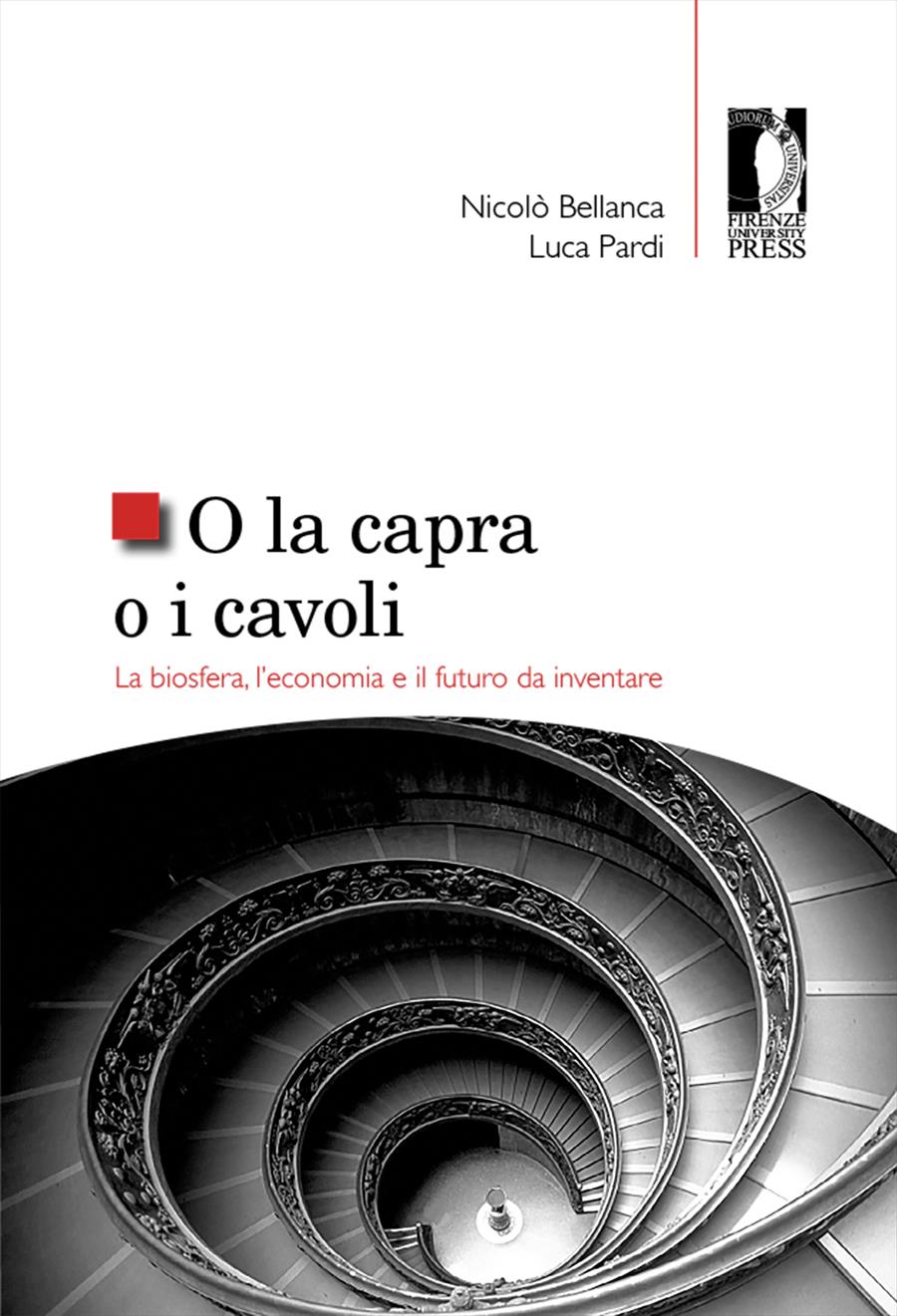- O la capra o i cavoli
- Nicolò Bellanca, Luca Pardi
Risorse e popolazione umana
- Nicolò Bellanca
- Luca Pardi
- © 2020 Author(s) |
- CC BY 4.0
- DOI: 10.36253/978-88-5518-195-2.06
The history of the genus Homo, and of the sapiens species in particular, is different from that of other species due to the extreme importance of cultural evolution compared to biological evolution. But from the discovery of how to use fire and generate it, up to the invention of the steam engine, man essentially lives, like the other organisms of the biosphere, on the energy flow guaranteed by solar radiation. With the encounter between machines and fossil fuels and the entry into the era of engines, the rules of the game change radically, and the activities of Homo sapiens change in extent and intensity, in such a way as to progressively reduce the living space of all other animal and plant species, except for the allied and commensal ones. The global industrialized society arising from the meeting between machines and fossil sources is presently facing two fundamental difficulties: the gradual saturation of terrestrial ecosystems with the waste of social and economic metabolism, and the finiteness of fossil energy sources, which are not easy replacement due to their special chemical-physical properties.
- Keywords:
- Fossil fuels,
- resource peak,
- EROI,
- resource depletion,
- technology,
- extractivism,
University of Florence, Italy - ORCID: 0000-0002-3809-3455
CNR-IPCF, Institute for Chemical-Physical Processes, Italy - ORCID: 0000-0002-6870-1490
- K. Aleklett , Peeking at Peak Oil, Springer, New York 2012.
- M. Auzanneau et al., Oil, Power, and War: A Dark History, Chelsea Green Publishing, Chelsea (Vermont) 2015.
- C. Baber, Cognition and Tool Use: Forms of Engagement in Human and Animal Use of Tools, Taylor & Francis, London 2003.
- G. Barbujani e A. Brunelli, Il giro del mondo in sei milioni di anni, Il Mulino, Bologna 2018.
- U. Bardi, Extracted. How the Quest for Mineral Wealth Is Plundering the Planet, Chelsea Green Publishing, Chelsea (Vermont) 2014.
- U. Bardi e L. Mercalli, La terra svuotata: il futuro dell’uomo dopo l’esaurimento dei minerali, Editori Riuniti University Press, Roma 2011.
- R. Bentley, Introduction to Peak Oil, Springer, New York 2016.
- P. Bihouix e B. de Guillebon, Quel Futur Pour Les Métaux? Raréfaction Des Métaux: Un Nouveau Défi Pour La Société, EDP Sciences, Les Ulis 2010.
- P. Bihouix, L’âge des low tech vers une civilisation techniquement soutenable, Éd. du Seuil, Paris 2014.
- M. Bonaiuti, La grande transizione. Dal declino alla società della decrescita , Bollati Boringhieri, Torino 2013.
- M. Chazan, Toward a Long Prehistory of Fire, “Current Anthropology”, 58 (S16), 2017, pp. S351–S359. DOI: 10.1086/691988
- K. S. Deffeyes, Beyond Oil. The View from Hubbert’s Peak, Farrar, Strauss & Giroux, New York 2006.
- J. Diamond, Armi, acciaio e malattie: breve storia del mondo negli ultimi tredicimila anni, Einaudi, Torino 2010 (ed. Orig. 1997).
- R. C. Francis, Addomesticati: l’insolita evoluzione degli animali che vivono accanto all’uomo, Bollati Boringhieri, Torino 2016 (ed. orig. 2015).
- C.A.S. Hall, Energy Return on Investment. A Unifying Principle for Biology, Economics, and Sustainability, Springer, New York 2016.
- C.A.S. Hall e K. Klitgaard, Energy and the Wealth of Nations. Understanding the Biophysical Economy, Springer, New York 2018.
- K. Lorenz, L’altra faccia dello specchio: per una storia naturale della conoscenza, Adelphi, Milano 2007.
- R. Heinberg, Peak Everything: Waking up to the Century of Declines, New Society Publishers, Gabriola Island (British Columbia) 2007.
- K. Lorenz, Gli otto peccati capitali della nostra civiltà, Adelphi, Milano 2007.
- D. Mainardi, L’animale irrazionale: l’uomo, la natura e i limiti della ragione, Mondadori, Milano 2001.
- M. Rossi, Pieno per Vuoto: chiaro e scuro delle rinnovabili , <https://www.aspoitalia.it/index.php/articoli/articoli-dei-soci/379-pieno-per-vuoto-chiaro-e-scuro-delle-rinnovabili> (09/20).
- J. C. Scott, Against the Grain: A Deep History of the Earliest States, Yale University Press, New Haven 2017.
- The Real Population Problem sul blog Do the Math <https://dothemath.ucsd.edu/2013/09/the-realpopulation-problem/> (09/20).
- D. Yergin, The Quest: Energy, Security and the Remaking of the Modern World, Penguin Press, New York 2011.
- D. Yergin, Il premio, Sperling & Kupfer, Milano 1991 (ed. orig. 1991).
Chapter Information
Chapter Title
Risorse e popolazione umana
Authors
Nicolò Bellanca, Luca Pardi
Language
Italian
DOI
10.36253/978-88-5518-195-2.06
Peer Reviewed
Publication Year
2020
Copyright Information
© 2020 Author(s)
Content License
Metadata License
Bibliographic Information
Book Title
O la capra o i cavoli
Book Subtitle
La biosfera, l’economia e il futuro da inventare
Authors
Nicolò Bellanca, Luca Pardi
Peer Reviewed
Number of Pages
210
Publication Year
2020
Copyright Information
© 2020 Author(s)
Content License
Metadata License
Publisher Name
Firenze University Press
DOI
10.36253/978-88-5518-195-2
ISBN Print
978-88-5518-194-5
eISBN (pdf)
978-88-5518-195-2
Series Title
Studi e saggi
Series ISSN
2704-6478
Series E-ISSN
2704-5919
